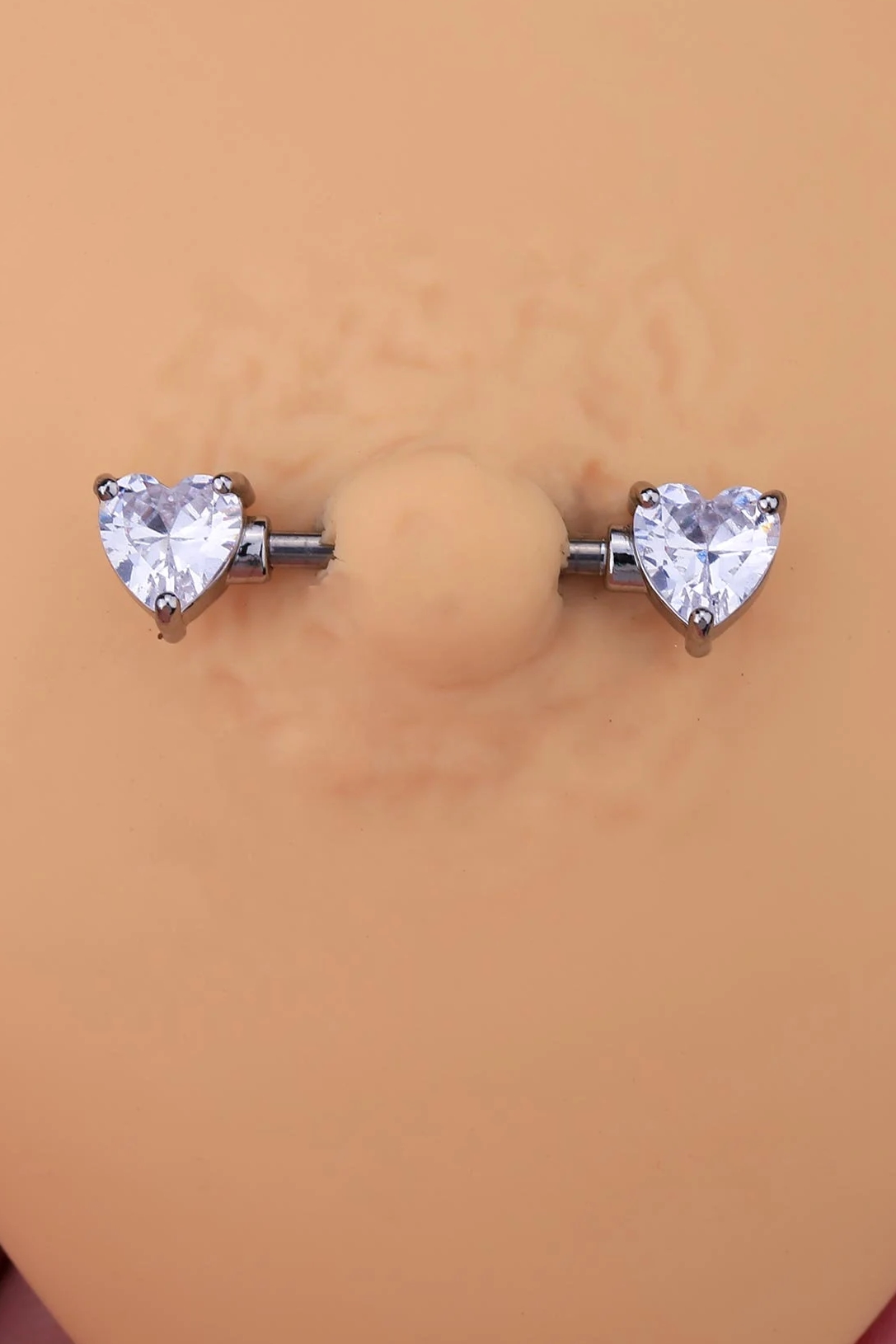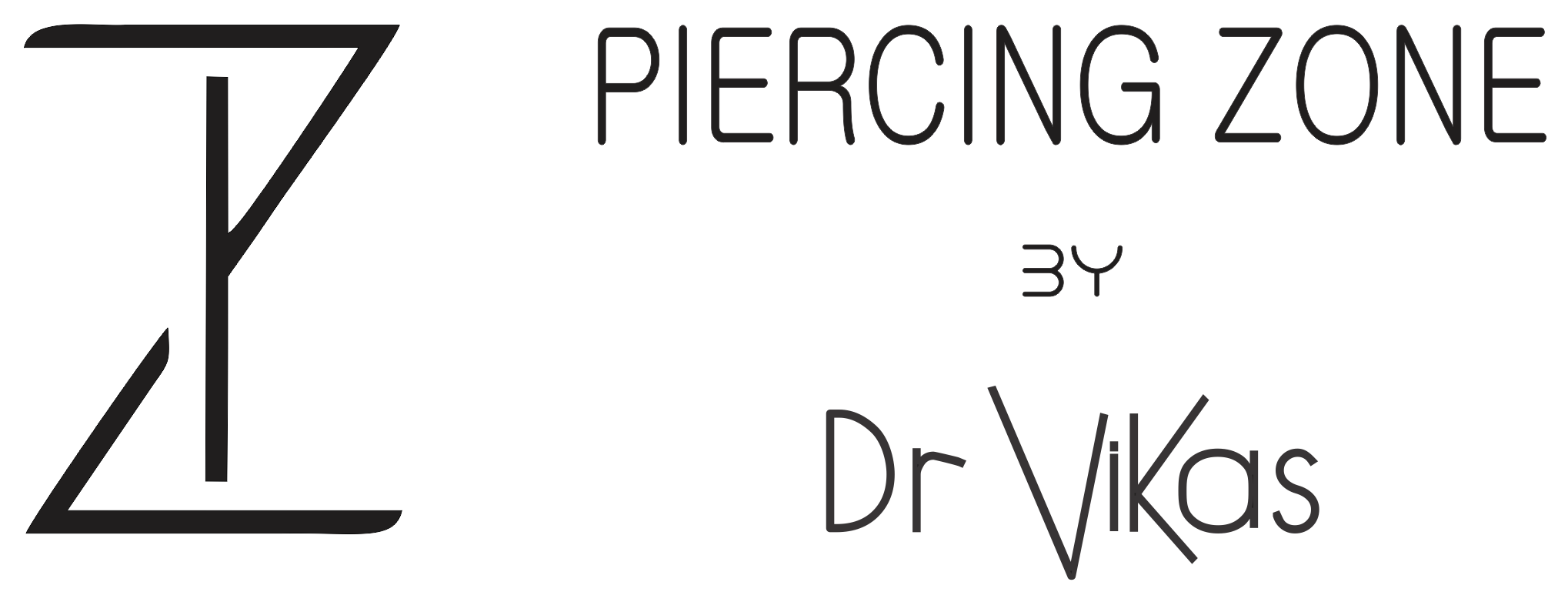Nipple Piercing Aftercare Guide
The healing period for a typical nipple piercing is nine to twelve months. Your body and how well you take care of the piercing will determine how long it takes to recover, though.
Things to Consider
- It is always preferable to pierce both nipples at the same time because they will mend more symmetrically that way. Unless you want to do only one.
- If you are a menstrual person and your breasts get sensitive during your period, you might want to consider delaying getting your breasts pierced.
- CAN YOU PIERCE INVERTED NIPPLES?
-
- Yes! In fact, in some cases, nipple piercings can actually fix this. When you’re pierced, it creates a tube of scar tissue in your nipple. This scar tissue keeps the nipple out and would even if you removed the jewelry.
- 14 or 12-gauge straight barbells are the only jewelry you should use in fresh nipple piercings. When you’re first pierced, the jewelry will be longer to account for swelling.
- Please don't do it if you are breastfeeding a baby or pregnant.
- Wash your piercing many times a day. In particular, if bleeding persists, use warm, clean water, a mild, unscented soap, and a clean, dry cloth or paper towel. Every time you take a shower or bath, try to rinse the piercing.
- At least twice a day, soak the piercing in Piercing Zone aftercare saline spray. After the piercing, continue doing this for a few months. Lay a brand-new, dry tissue over the puncture, then mist the tissue with the solution until it's completely moistened. Soak each day for five to ten minutes in this manner.
- For a few months, dress in loose cotton garments. Wearing tight clothing can keep the piercing from receiving fresh air, increasing the risk of bacterial growth. Additionally, wearing tight clothing can cause pain and harm to the piercing by rubbing against and irritating it.
- Wear thick cotton clothes or sports/padded bras at night or during physical activity. This can help keep the piercing still and protect it from snagging on blankets or fabrics in bed. This also protects it when you’re doing activities like working out or playing sports, when the piercing can get hit or move around vigorously.
- Take caution when putting on your clothes. The piercing may get caught in fabric, which could pull on it or rip the ring out. In addition to being uncomfortable, this raises your risk of infection.

Tips & Tricks
- Under no circumstances should you take off your jewellery during the healing process because doing so increases the risk of losing the piercing, and putting it back is not the solution.
- Jewellery should never be changed, replaced, or altered while the body is recovering. We recognise that anyone can quickly become tired of their jewels, but doing so while the piercing is healing, which takes 12 months, is very terrible and can quickly make the healing process more difficult.
- Every day, wash your piercings in clean water and mild soap in the shower. Don't forget to use a dryer to dry them after.
- Applying fucicort lotion or fucidin helps accelerate the healing process.
- The first jewellery change should be performed by a qualified piercer. You can only do this when the piercing has fully healed.
- Keep in mind that stress, bad diet, drug addiction, or illness might lead to a prolonged recovery period or other challenges.
What to Avoid
- The first several weeks following the piercing are when you should avoid using any drugs or medicines that thin the blood. This includes excessive caffeine, alcohol, or aspirin. All of them may increase the likelihood of bleeding by preventing the piercing from clotting and healing.
- For up to a month, stay away from lakes, pools, and the sea because contaminated water can quickly infect piercings.
- While your piercing is healing, avoid rotating or flipping it. They won't be stuck, I promise you.
- Steer clear of any lotions, including those for skin care and makeup. even the moisturisers that are close to your piercing. The healing process can quickly become complicated if something gets stuck in your piercing or on your jewellery.
- Do not clean with bactine, hydrogen peroxide or alchohol or cotton buds.
- Avoid tea tree oil and any other products that your friends or social media have recommended.

